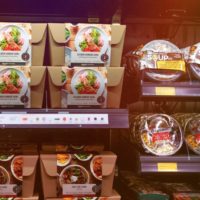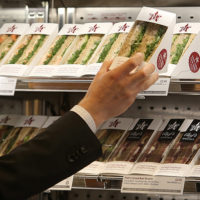Local Food Lab, the accelerator program that bolsters food and farm startups to reimagine local food economies, recently launched a ‘Ask Me Anything’ (AMA) series on its Food Lab News platform. Popularized by Reddit, a social news website, AMAs are a thread of questions, hosted by an interesting person, to which anyone can submit. In conjunction with the company’s newly-launched Start Something Local, a platform that helps food entrepreneurs launch and grow their companies, the AMA series aims to give anyone the opportunity to learn first-hand from Local Food Lab’s network of mentors.
Niko Hrdy, President of Valley Oak Investments, led the kickoff AMA. Hrdy has worked with several early-stage companies, and now focuses specifically on early-stage investments in the food and agriculture industries. Companies in his portfolio include: Marrone Bio Innovations, mOasis, Farmeron, AgLocal, Blue Bottle Coffee and Caviar.
The AMA explored a range of questions from the importance of revenue vs. growth to utilizing in-store demos to build brand identity and increase market share.
The following is a sampling of the meaty Q&A. You can view the full AMA here.
Q: What considerations are most important to you when evaluating a potential investment?
A: 1.) TEAM, TEAM, TEAM— I prefer successful, repeat entrepreneurs with deep domain expertise and awesome cofounders with complimentary skill sets. I bet on people, not ideas. I want a CEO that can surround themselves with people who are smarter than themself.
2.) Market – Outsized, under-penetrated markets of greater than $500 million or $1 billion without incumbents.
3.) Traction – I want to see hockey sticks! Whether it be revenue growth, number of users, etc. This isn’t so much about total number, but rather about how quickly these numbers are growing.
4.) Barriers to entry: Having intellectual property or building a defensible, sticky platform.
5.) Exit – Are there obvious acquirers? How do I get my money back?
Impact – What is the founder’s vision? How much impact can this company create at scale? Does their mission align with mine?
Other participants delved beyond the overall considerations for investment, inquiring about investment sizes and the hottest types of food startups from an investor perspective. These examples followed by Hrdy’s answers are below.
Q: What are the average investment sizes, given that there are potentially greater risks per transaction? What are the major food-specific pitfalls in fundraising discussions?
A: The average investment size depends on the stage of the business and on the use of proceeds. Pre-seed stage startups are usually looking for product market fit, and once they have found this, then it makes sense for them to raise a seed round. The size of the seed round can very from $200K to $3M depending on the type of business and that business’ strategy. For example, if a food company is looking to build its own manufacturing and packaging plant, than it would require a lot of money, but it wouldn’t make sense to raise this much money unless the company had already proven that it could fulfill this volume of orders. Institutional investors typically want a significant ownership percentage (i.e. ~10-30%). So if you are raising institutional capital, you can assume that the check size would be equal to ~10-30% of the post-money valuation of the business.
Q: What types of food startups/models are you seeing the most investor interest gravitate towards and why? for example, b2b farm to table logistics platforms, farm to customer deliveries, subscription boxes, etc.?
A: Ecommerce subscription models, like NatureBox, were getting a lot of attention over the past 2 years, but demand for this type of model has cooled off and so you are seeing less of these types of companies getting to their Series A. There is a big trend right now focused on food delivery (e.g. Blue Apron, Plated, Munchery, Caviar) and several of these companies have raised a good bit of money and are off to the races. There are also some new companies entering this market with a different, more vertically integrated model (e.g. SpoonRocket). I am particularly attracted to startups that are disintermediating the agricultural supply chain (e.g. AgLocal, Sourcery Technologies, Local Food Systems, Foodem). There is also a lot of investor interest right now in agricultural robotics (e.g. Blue River Technologies, Harvest Automation, Rowbot), drones/drone software (e.g. Airware), and protein substitutes (e.g. Hampton Creek Foods, Beyond Meat, Soylent).






